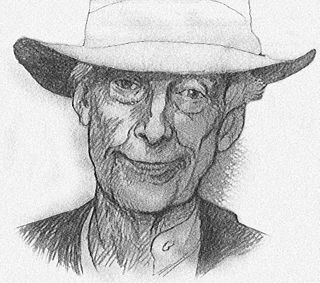A Quote by Konrad Lorenz
Historians will have to face the fact that natural selection determined the evolution of cultures in the same manner as it did that of species.
Quote Topics
Related Quotes
Natural Selection is not Evolution. Yet, ever since the two words have been in common use, the theory of Natural Selection has been employed as a convenient abbreviation for the theory of Evolution by means of Natural Selection, put forward by Darwin and Wallace. This has had the unfortunate consequence that the theory of Natural Selection itself has scarcely ever, if ever, received separate consideration.
Group selection and individual selection are just two of the selection processes that have played important roles in evolution. There also is selection within individual organisms (intragenomic conflict), and selection among multi-species communities (an idea that now is getting attention in work on the human microbiome). All four of these levels of selection find a place in multi-level selection theory.
You know, Darwin said through natural selection things go gradually, and he was talking about pigeon's evolution or horses evolving, getting faster. But in fact if you look at evolution on a bigger scale, cosmic evolution and you look at culture evolution you see it jumps, it goes through phase changes, and that's very exciting.
Creationists argue that natural selection is only a negative process, and therefore cannot create anything. Chopra argues that skepticism is only a negative process, and therefore does not lead to knowledge. Both are wrong for the same reasons. They ignore the generation of diversity and new ideas upon which natural selection and skepticism acts. Weeding out the unfit is critical to both - natural selection allows evolution to proceed, and skepticism allows science to advance.
The evolution of cultures appears to follow the pattern of the evolution of species. The many different forms of culture which arise correspond to the "mutations" of genetic theory. Some forms prove to be effective under prevailing circumstances and others not, and the perpetuation of the culture is determined accordingly.
The theory of natural selection is the centerpiece of The Origin of Species and of evolutionary theory. It is this theory that accounts for the adaptations of organisms, those innumerable features that so wonderfully equip them for survival and reproduction; it is this theory that accounts for the divergence of species from common ancestors and thus for the endless diversity of life. Natural selection is a simple concept, but it is perhaps the most important idea in biology.
In fact, nothing in science as a whole has been more firmly established by interwoven factual information, or more illuminating than the universal occurrence of biological evolution. Further, few natural processes have been more convincingly explained than evolution by the theory of natural selection, or as it has been popularly called, Darwinism.
The human brain became large by natural selection (who knows why, but presumably for good cause). Yet surely most "things" now done by our brains, and essential both to our cultures and to our very survival, are epiphenomena of the computing power of this machine, not genetically grounded Darwinian entities created specifically by natural selection for their current function.
































